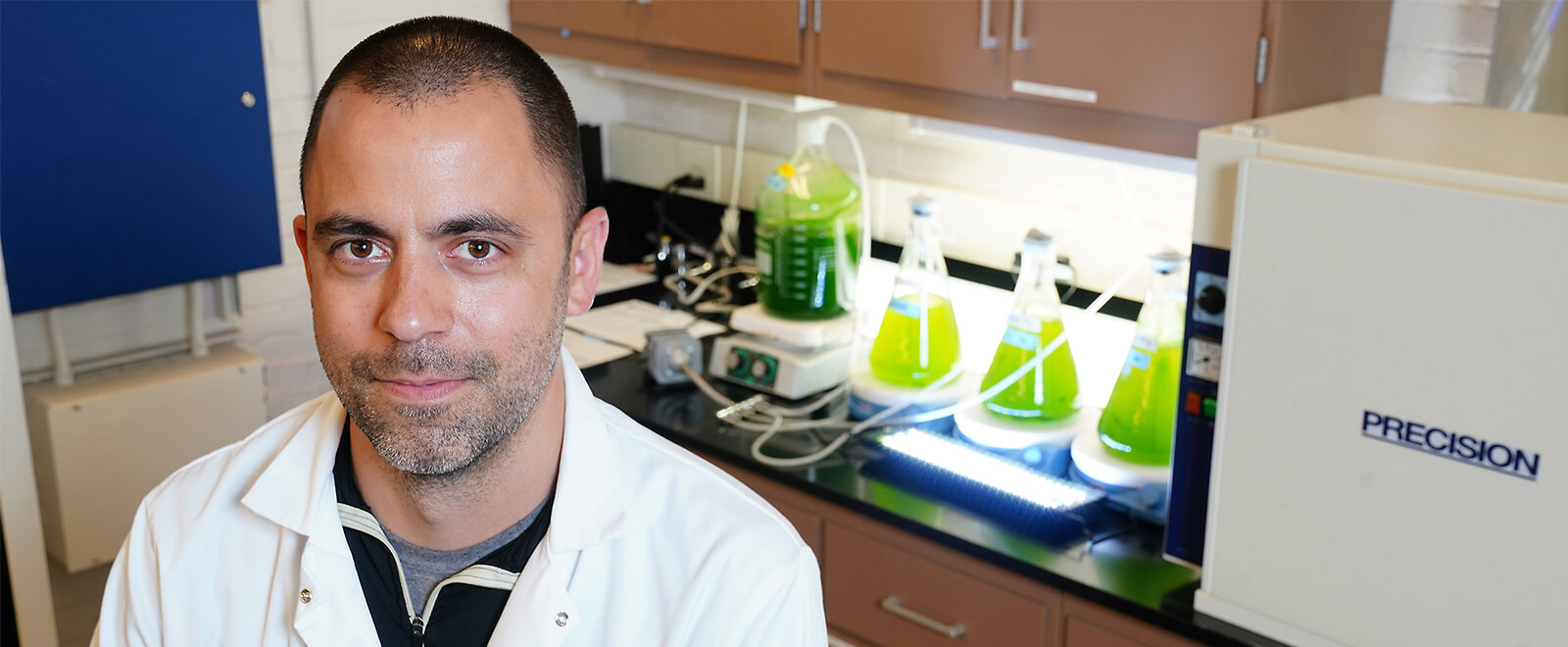Behind the Research: Matthew Hamilton
A
bout the feature
Many people are involved in the remarkable range of programs, services and facilities that undergird research in the College of Agriculture. Collectively they’re integral to the college fulfilling its research mission. “Behind the Research” explores their individual roles. Each academic year, we profile six people whose work supports the College of Agriculture’s global reputation for developing innovative, multidisciplinary solutions to challenges and then putting those solutions into action.

Matt Hamilton, fisheries and aquatics lab manager, Department of Forestry and Natural Resources
-
Manages seven lab spaces and provides technical assistance to more than 45 lab users in topics ranging from aquatic toxicology to animal husbandry.
-
Collaborated with staff and faculty to identify and develop new spaces for conducting aquatic toxicology studies and archiving samples.
-
Received the 2020 Forestry and Natural Resources Department's Outstanding Administration/Professional Staff Member and Bravo service awards.
Matt Hamilton arrived at Purdue and the Department of Forestry and Natural Resources in spring 2019. A year later he had “a good understanding for how the job was going to run,” he says — so much so that he intended to pursue his own research, which he’d been encouraged to do once he settled into his lab manager responsibilities.
Then COVID hit, and Hamilton joined other essential personnel in creating emergency safety procedures and ramping down research projects. After a slowdown lasting a month or two, research resumed in reorganized lab spaces on projects that were adapted to the unique circumstances — as he puts it, “planning for research to go back to normal while also planning for research during a pandemic.”
Hamilton oversees seven lab spaces in the forestry and natural resources department. While his responsibilities differ from lab to lab, his main focus is on helping researchers in the fisheries and aquatic resources group. “I ensure proper maintenance of laboratory equipment and inventory of supplies, and oversee lab personnel so that everyone can work in a safe environment. I also provide technical support during project development and implementation to make sure lab personnel are using equipment properly and collect reliable data,” he says.
Hamilton graduated from Purdue’s College of Technology (now the Purdue Polytechnic Institute) with a BS in Organizational Leadership and Supervision. He minored in Wildlife Science and then earned a second bachelor’s degree to prepare for graduate school and a research-related career. “I knew that I wanted to work in the natural resources field,” he says.
He then went to work in Texas, where he managed research projects on bat activity around a wind farm. He completed an MS at the University of Georgia, where his research focused on ecotoxicology with aquatic reptiles. He gained further experience as a technician on projects that took him to Guam and Japan. When he saw an opening for a lab manager at Purdue, the chance to facilitate research at his alma mater, near family, drew him back to West Lafayette.
Most of Hamilton’s interaction is with undergraduate and graduate students as well as postdocs. “That’s one of my favorite things about the job,” he says. “I help with students’ initial training and orientation in their first or second year, and it’s great to see how they grow over the years from the time they start to when they finish. It’s neat to see people be successful, and we do it day and day out, every year.”
Hamilton also identifies resources in his department, university-wide and externally to support the research. He implements lab methods and protocols, and conducts initial and specialized safety training. “Every day is different,” he says. “Every day can be a challenge. Our labs are very diverse, so we have very different problems to solve on a daily basis.”
He often works collaboratively with other lab managers in forestry and natural resources to identify resources for research projects. “When you think about the number of students who come through the labs, there’s a lot of turnover. Faculty have their hands full. Our main responsibility is to help research get done on a day-to-day basis.”
Hamilton says that while he’s glad to be “a helping hand from an intellectual and physical standpoint,” he hopes to begin the research that the pandemic put on hold. “Once we get back to normal, I can conduct my own within the framework of research in the lab,” he says.






